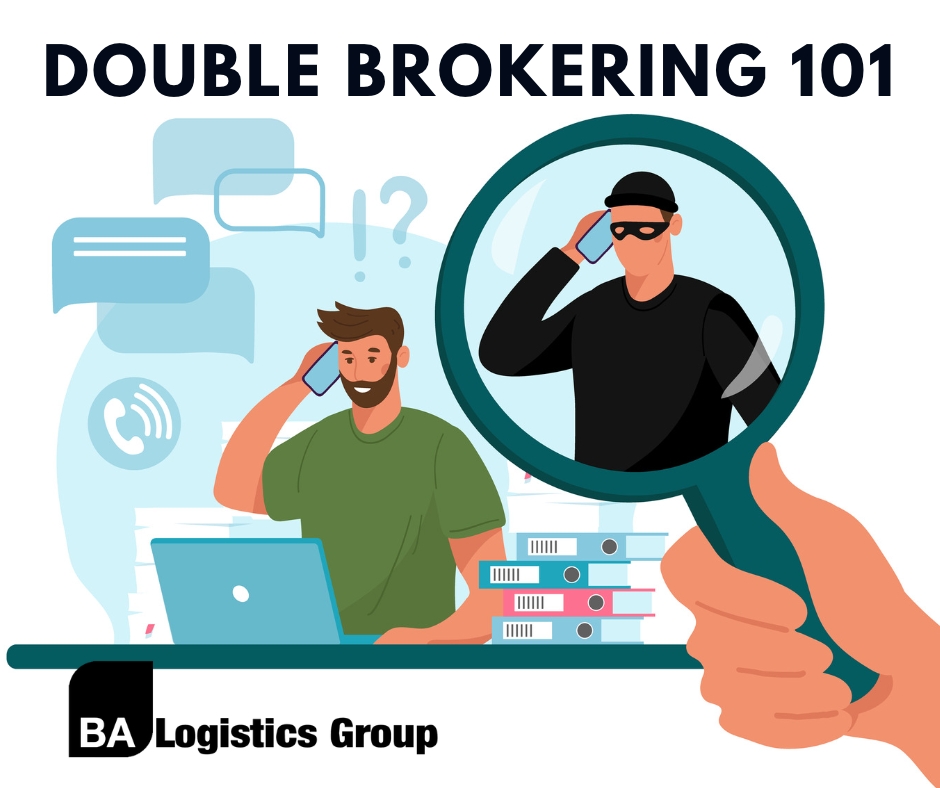Double brokering is a term used in the transportation industry to describe a fraudulent practice in which a freight broker accepts a load from a shipper and then subcontracts that same load to another broker without the shipper’s knowledge or consent. This practice can have severe consequences for shippers and carriers, including delayed deliveries, damaged goods, and financial losses. We’ll explore why double brokering is a problem, provide facts and statistics about it, describe common scenarios, and offer ways to avoid it.
Why Double Brokering Is a Problem
Double brokering is a problem for several reasons. First, it can lead to delayed deliveries, which can be costly for shippers and carriers. Second, each carrier may have different handling procedures, equipment, and loading practices, which can result in damaged goods. Third, double brokering can cause financial losses for both the shipper and the carrier, as the second broker may fail to pay the carrier who actually transported the load. Finally, double brokering is a fraudulent practice that can damage the reputation of the transportation industry.
Facts and Statistics About Double Brokering
Double brokering is a widespread problem in the transportation industry. According to a study by DAT Solutions, a provider of transportation industry data and analytics, 16% of carriers reported that they had been double-brokered in the previous year. Another study by the Transportation Intermediaries Association found that 21% of freight brokers have been victims of double brokering. These statistics highlight the prevalence of this unethical practice in the industry.
Scenarios of Double Brokering
Double brokering can happen in several ways. One common scenario is when a broker accepts a load from a shipper and then outsources it to another broker without the shipper’s knowledge or consent. The second broker then finds a carrier to transport the load, and the load changes hands again. In this scenario, the shipper is unaware that their load has been double-brokered, and they may assume that the first broker is responsible for transportation and delivery.
Another scenario is when a broker accepts a load from a shipper and then fails to find a carrier to transport it. In this case, the broker may double broker the load as a way to make a profit without actually transporting the goods themselves.
Ways to Avoid Double Brokering
To avoid double brokering, shippers and carriers can take several steps. First, they should research the broker they are considering working with. Checking their credentials, references, and online reviews can help identify red flags such as complaints about double brokering. It is also essential to work with a trustworthy broker who has a good reputation and is known for their transparency and ethical practices.
Additionally, shippers and carriers should sign a contract that outlines the terms and conditions of the transportation agreement and specifies that the broker will not double broker the load. It is also crucial to verify carriers before working with them. This includes checking their credentials, insurance, and safety record to ensure they are authorized to transport the goods and have the proper equipment and experience.
Finally, monitoring the load and staying in communication with the carrier throughout the transportation process can help detect any issues or delays and take corrective action if needed.
Conclusion
Double brokering is a fraudulent practice that can have severe consequences for shippers and carriers in the transportation industry. To avoid double brokering, shippers and carriers should research brokers, work with trustworthy brokers, sign contracts, verify carriers, and monitor the load. By taking these steps, shippers and carriers can ensure a smooth and successful transportation process while avoiding the risks of double brokering.

